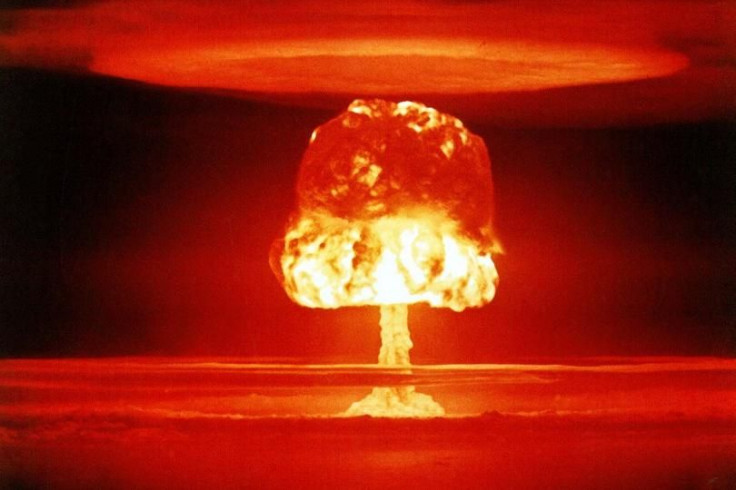Trump Nuclear Arms Race: Pentagon Panel Urges Administration To Develop Tactical Nukes, Report Says

An unpublished December report by a Pentagon panel, the Defense Science Board, has recommended that the Trump administration should focus on making the U.S. arsenal more adept at “limited” atomic war.
The recommendations advocate for developing weapons that could provide a “tailored nuclear option for limited use.” The report titled “Seven Defense Priorities for the New Administration” also deals with homeland security, cybersecurity and other topics, according to CQ that obtained the report.
CQ suggests that the Defense Science Board made these recommendations by reasoning that Moscow’s military doctrine allows for the possibility of using nuclear weapons first in the event of a war. This doctrine — a posture Russia refers to as “escalate to de-escalate”— is aimed at deterring the United States from further escalating the conflict. The Pentagon panel also suggested that similar tactics could be employed by other nations such as China, North Korea and Iran.
Although a 1993 ban on development of nuclear weapons was overturned a decade later, both the Pentagon and the Energy Department did not begin developing the weapons. CQ concludes that the report may change that in the time to come. However, the most important determinant of a change in policy depends on the new President Donald Trump.
Since before being elected, and even more so after, Trump’s comments on nuclear weapons and bombs have spooked people internationally and raised the specter of another nuclear arms race. In December, Trump tweeted about his plans to expand America's nuclear capability until "the world comes to its senses regarding nukes." During the election campaign, he suggested that the nuclear option may be an appropriate response to an attack by the Islamic State group.
About 34 former nuclear launch control officers wrote an open letter during the Trump campaign, saying that they don’t trust Trump with “his finger on the button." Several lawmakers are also wrestling with the idea that not only the president, but the Congress should also have the authority to launch a nuclear first strike.
Last week, Trump said that he is working on a new “nuclear posture review,” which would ensure a “modern, robust, flexible, resilient, ready, and appropriately tailored to deter 21st Century threats and reassure our allies.” More concerning is the fact that the Trump administration may repeat mistakes of the past like Iraq invasion over weapons of mass destruction or the Gulf of Tonkin incident, which have led to wars, considering Press Secretary Sean Spicer on Thursday falsely accused Iran of attacking a U.S. Navy vessel.
Trump's comments have prompted scientists managing the Doomsday Clock to update its readings. The clock is an indicator of how close the world's leading scientists think humans are from destroying the planet. Midnight on the clock indicates that the moment of disaster is here. Last week, the clock edged 30 seconds closer to midnight, putting the world two and a half symbolic minutes away from destruction.
© Copyright IBTimes 2025. All rights reserved.






















